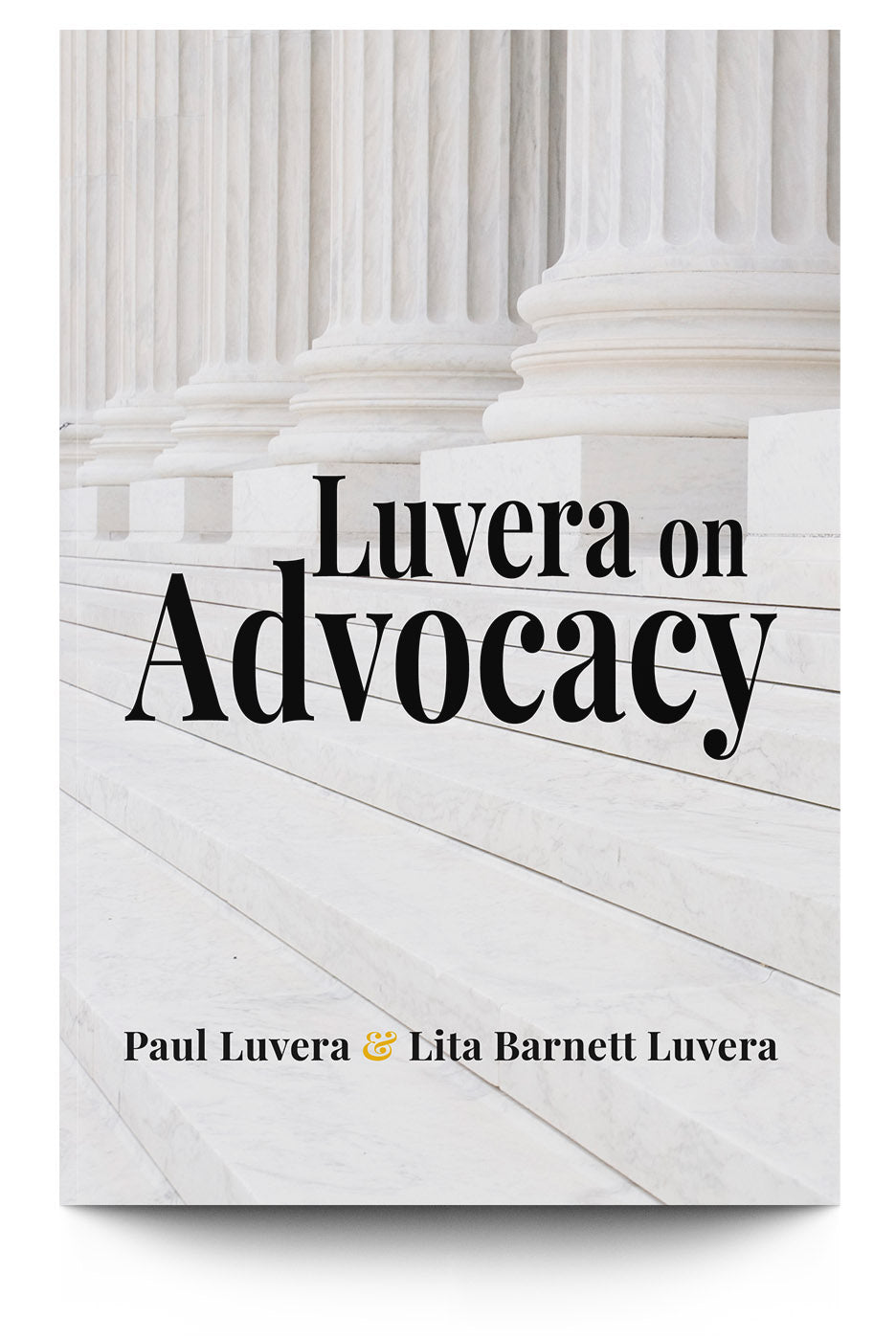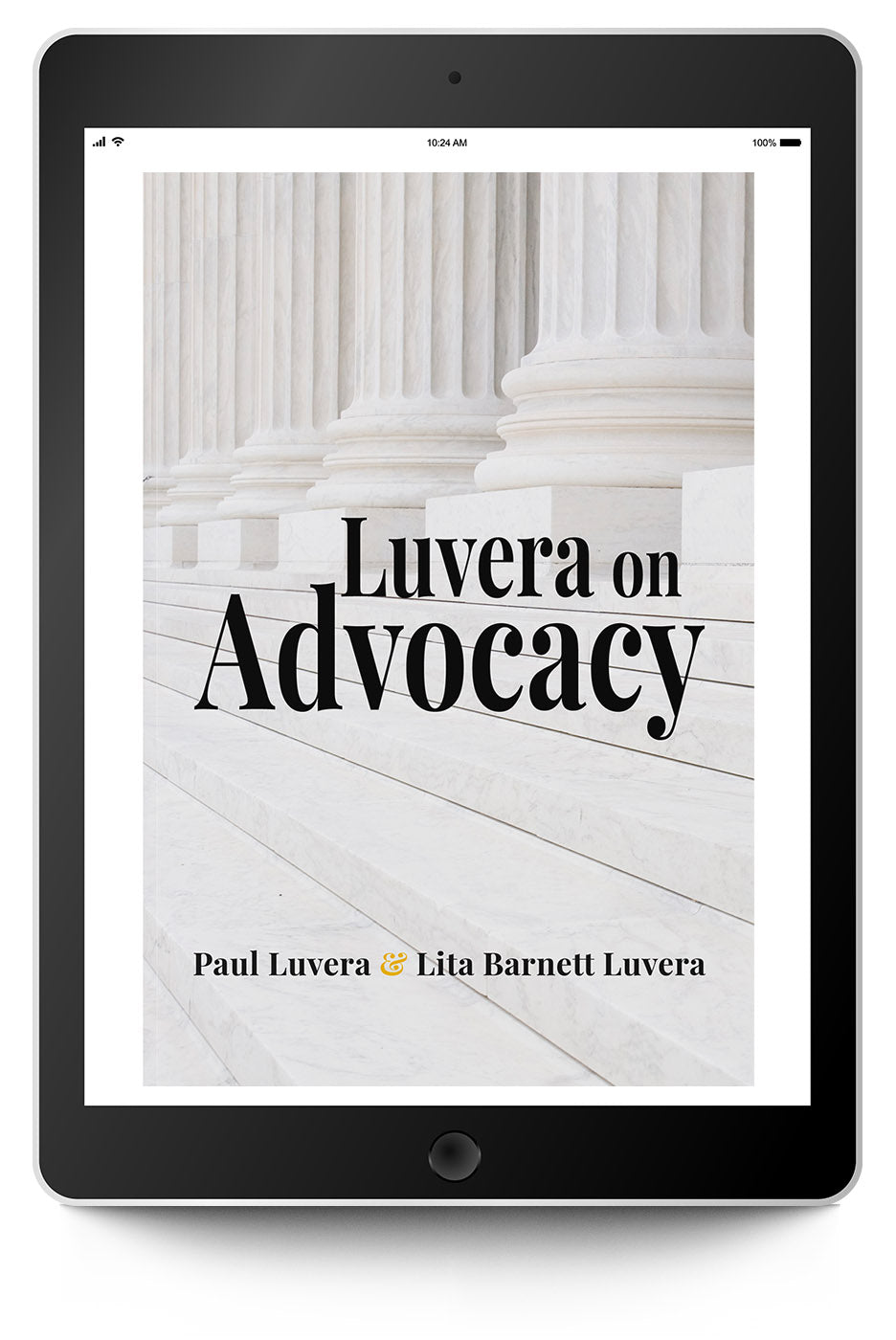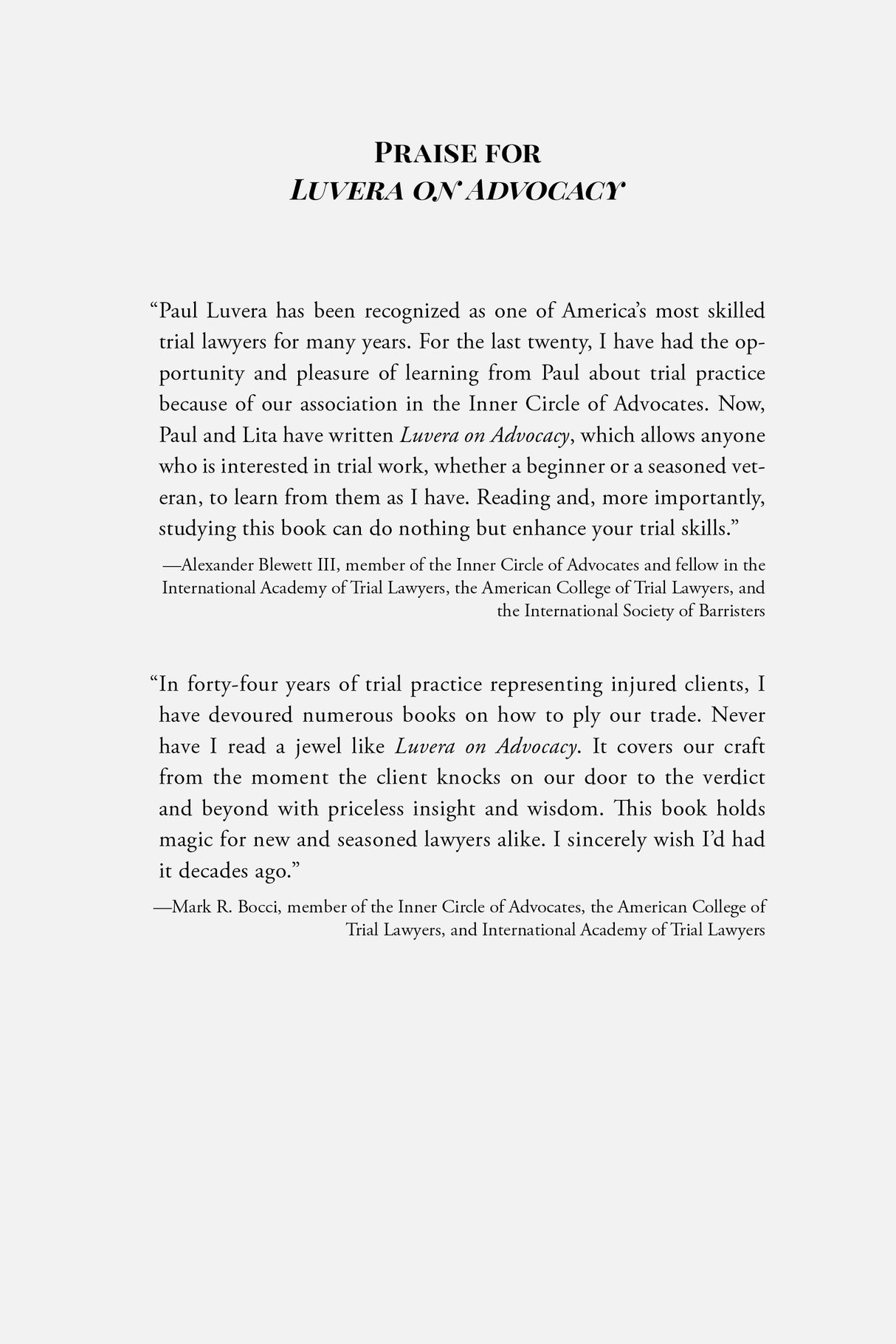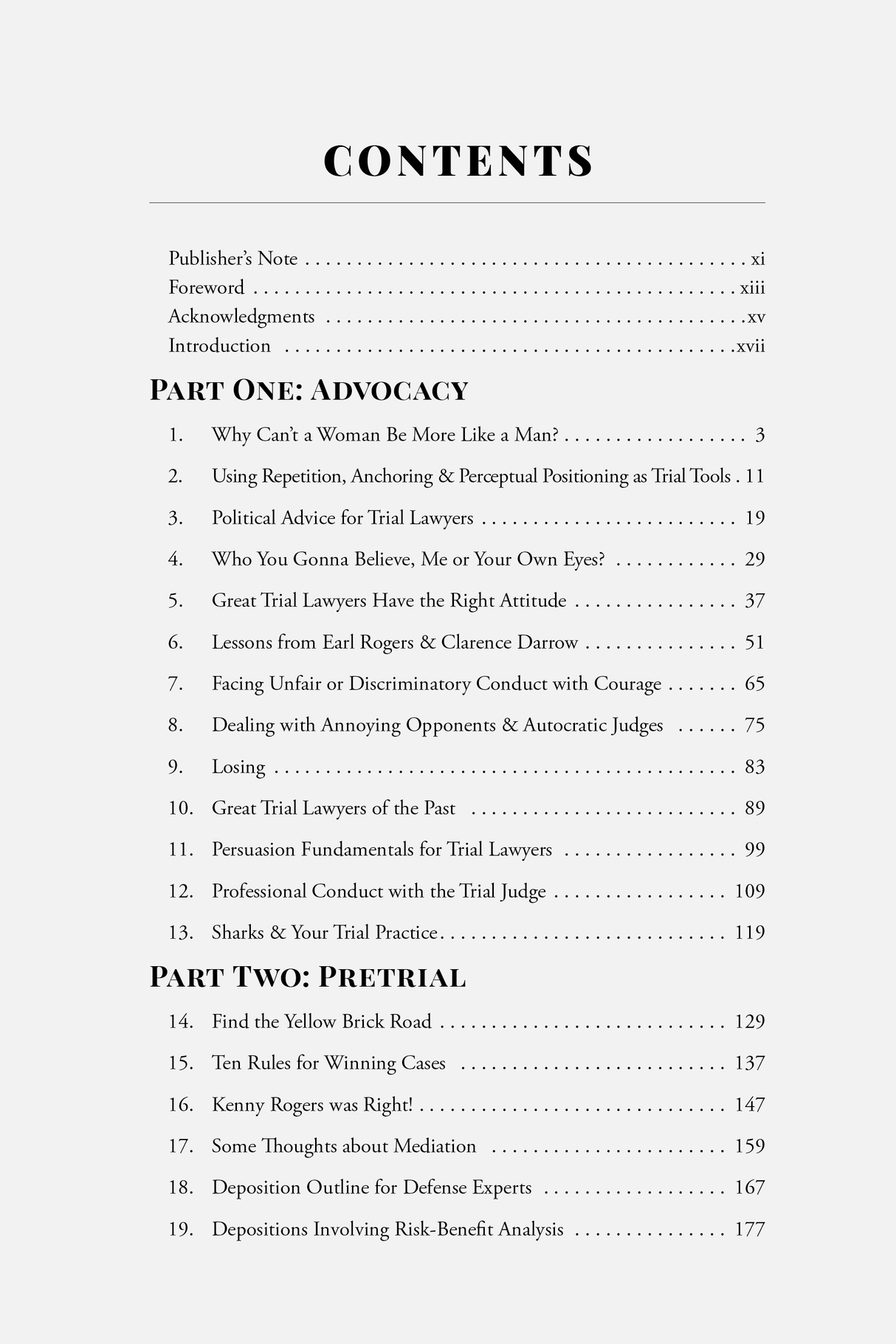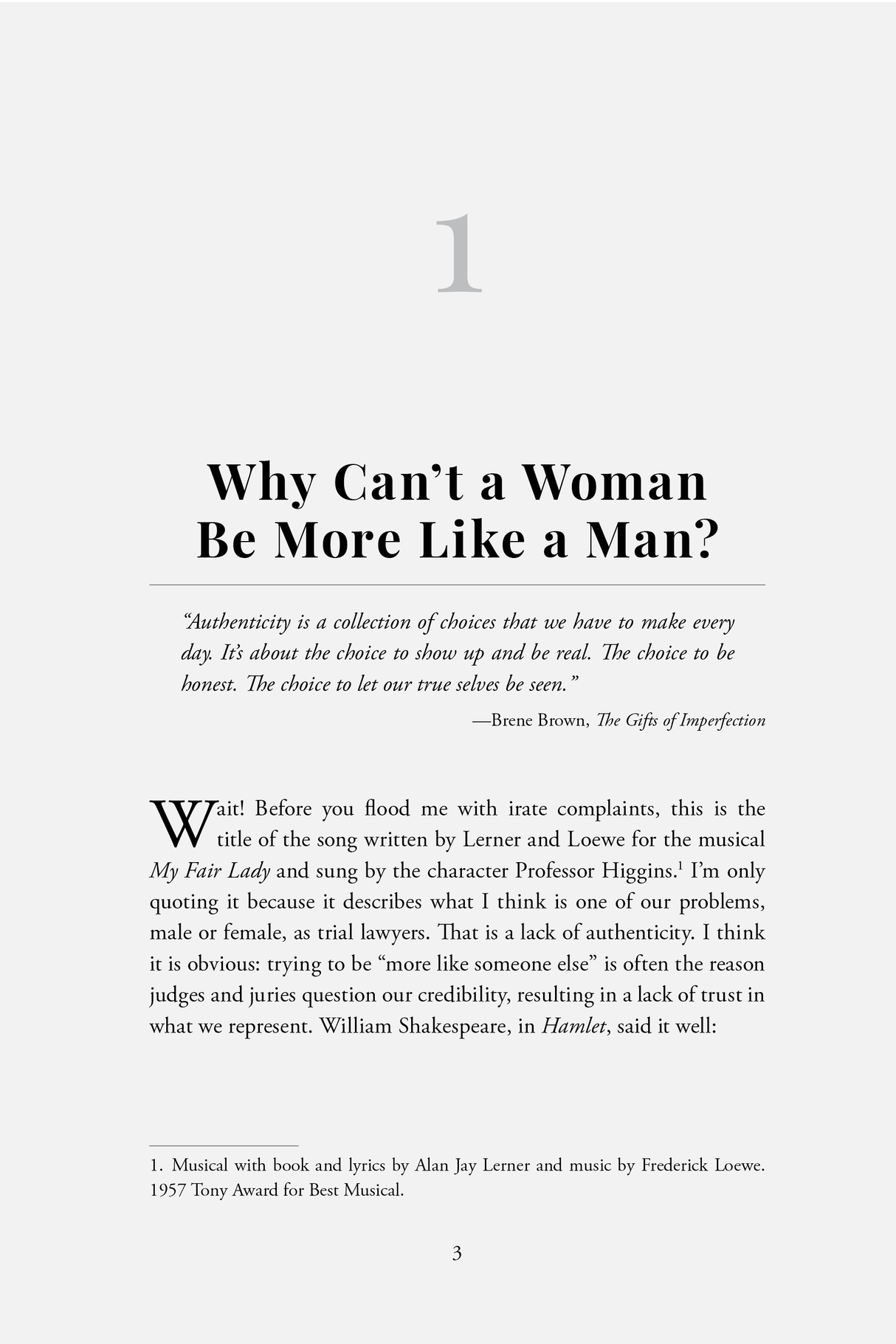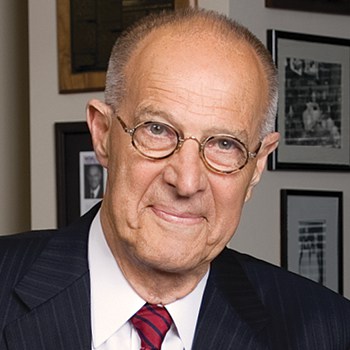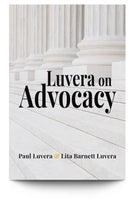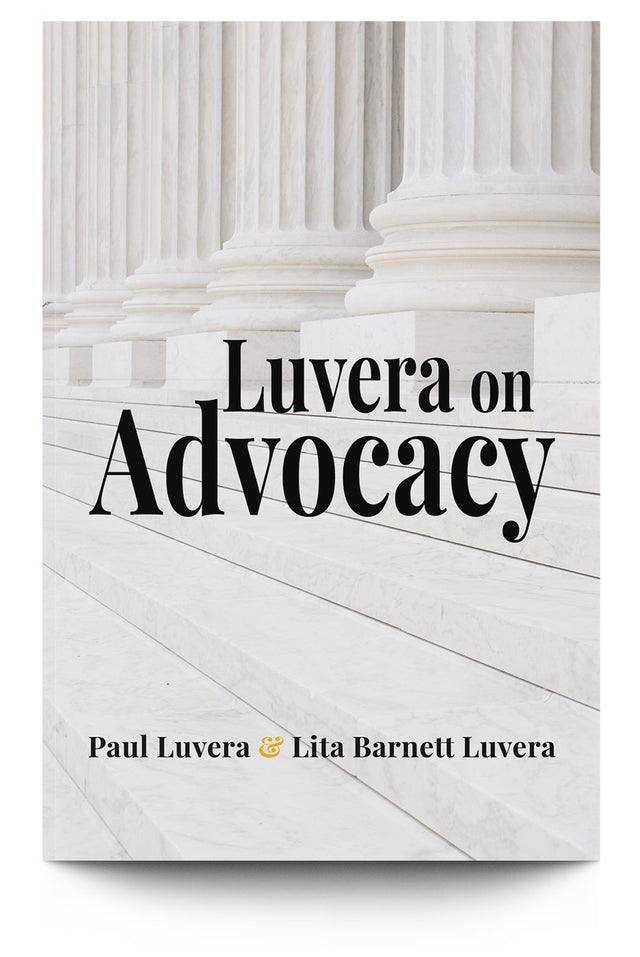Description
Description
This book is about winning cases. Written by Paul Luvera and Lita Barnett Luvera, two highly successful and experienced plaintiffs’ lawyers, this book offers a bounty of insight and advice on how to successfully represent injured clients.
The authors offer a vast wealth of knowledge, including lessons from their own careers, examples from great attorneys of the past, and discussions of modern research and how it applies to the practice of law. Inside you will find lessons and explorations on the following and more:
- ten basic rules for winning cases
- persuasion, neuroscience, and effective communication
- lessons from great trial lawyers of the past
- authenticity, credibility, and trust worthiness
- case evaluation and analysis
- depositions
- case frames and themes
- settlement discussions
- jury decision-making
- preparing clients for deposition and testimony
- opening statement
- direct examination & witness testimony
- common cross-examination problems
- difficult opponents and judges
- damages arguments
- questions regarding life expectancy and future damages
Paul and Lita offer you a collection of distilled wisdom, earned from decades of successfully representing clients. Don’t miss out on your chance to learn from two of the top trial lawyers in America.
Your eBooks are now accessible from your Trial Guides account! Click here for step by step instructions.
Do you want the eBook and print book? After you complete your purchase of the print book you will receive a coupon code via email to purchase the eBook for $20.
Authors
Authors
Details
Details
Paperback: 436 pages; 1st edition (2020); ISBN: 9781941007976
Publisher: Trial Guides, LLC
Table of Contents
Table of Contents
Acknowledgments
Publisher’s Note
Introduction
Part One: Advocacy
- Why Can’t A Woman Be More Like A Man?
- Using Repetition, Anchoring & Perceptual Positioning
- Political Advice for Trial Lawyers
- Who You Gonna Believe, Me or Your Own Eyes?
- Great Trial Lawyers Have the Right Attitude
- Lessons from Earl Rogers & Clarence Darrow
- Facing Unfair or Discriminatory Conduct with Courage
- Dealing with Annoying Opponents and Autocratic Judges
- Losing
- Great Trial Lawyers of the Past
- Persuasion Fundamentals for Trial Lawyers
- Professional Conduct with the Trial Judge
- Sharks and Your Trial Practice
Part Two: Pretrial
- Find the Yellow Brick Road
- Ten Rules for Winning Cases
- Kenny Rogers was Right!
- Some Thoughts about Mediation
- Deposition Outline for Defense Experts
- Depositions Involving Risk-Benefit Analysis
Part Three: Trial—The Jury
- Is the CBS TV Series Bull Aptly Named?
- How Do Jurors Arrive at a Verdict?
- Understanding Jurors
- Identifying Juror Personality Traits in Voir Dire
Part Four: Trial—Opening Statement
- Elements of a Great Opening Statement
Part Five: Trial—Direct Examination
- Conduct Compelling Direct Examinations
- Direct Examination Done Right
- Preparing Your Clients for Testifying: Meet Your New Best Friend
- Improving Your Expert Witness’s Testimony
Part Six: Trial—Cross-Examination
- Cross-Examining a Medical Defense Expert
- Cross-Examining an Evasive Witness
- Dealing with Life Expectancy
Part Seven: Trial—Argument
- Arguing the Verdict Amount
- Senior Citizen Personal Injury Cases
- Arguing Damages to the Jury
- Helping the Jury Understand the Reality of Suffering from Injury
Free Chapter Sample
Free Chapter Sample
What Legal Leaders Are Saying
— Alexander Blewett III, member of the Inner Circle of Advocates and fellow in the International Academy of Trial Lawyers, the American College of Trial Lawyers, and the International Society of BarristersPaul Luvera has been recognized as one of America’s most skilled trial lawyers for many years. For the last twenty, I have had the opportunity and pleasure of learning from Paul about trial practice because of our association in the Inner Circle of Advocates. Now, Paul and Lita have written Luvera on Advocacy, which allows anyone who is interested in trial work, whether a beginner or a seasoned veteran, to learn from them as I have. Reading and, more importantly, studying this book can do nothing but enhance your trial skills.
— Mark R Bocci, member of the Inner Circle of Advocates, American College of Trial Lawyers, and International Academy of Trial LawyersIn forty-four years of trial practice representing injured clients, I have devoured numerous books on how to ply our trade. Never have I read a jewel like Luvera on Advocacy. It covers our craft from the moment the client knocks on our door to the verdict and beyond with priceless insight and wisdom. This book holds magic for new and seasoned lawyers alike. I sincerely wish I’d had it decades ago.
— Jude Basille, member of the Inner Circle of Advocates and past president of Trial Lawyers CollegeAn absolute must read for any trial lawyer! Paul and Lita have a decades long jury record of success that is unmatched. Few, if any, trial lawyers can demonstrate Paul’s devotion to the art of jury trial advocacy. The uniqueness of Paul Luvera is his continual search and personal work to be a better trial lawyer, in spite of being one of the best of all time. This book shares a lifetime of experience while applying the latest learning and research. Paul’s life’s work is here to make us all better and motivate us to continue the rare art of jury trials.
— James S. Rogers, fellow of the American College of Trial Lawyers, the International Academy of Trial Lawyers, the International Society of Barristers, and a member of the American Board of Trial AdvocatesPaul Luvera and Lita Barnett Luvera’s Luvera on Advocacy is the most comprehensive and information-filled book on how to try and win a case I have ever read. The book has everything from determining whether to take a case to pretrial preparation and trial (voir dire through final argument). The Luveras effectively use excerpts from trial testimony and quotes from great trial lawyers and public figures throughout history. If there is one book that should be on the desk of trial lawyers, regardless of experience levels, it is Luvera on Advocacy.
— Joe Power, past president of the Inner Circle of Advocates, Public Justice, and the Illinois Trial Lawyers AssociationPaul and Lita Luvera’s book, Luvera on Advocacy is a must-read and keepsake for any seasoned or aspiring plaintiffs’ trial lawyer. In this book, they explain how psychology and neuroscience research helps us decipher human decision-making and communicate our message persuasively. The book runs the gamut from case evaluation and screening, witness preparation, deposing defense experts, performing opening statements, and improving cross-examination techniques while utilizing cross-examinations in historic cases by legendary trial lawyers. In addition, the book covers how to develop simple themes and frames drawn from focus groups as an effective tool in obtaining successful jury verdicts for our clients. It further discusses how to make a powerful closing argument, as well as effectively arguing damages. It is a virtual “how to” handle a personal injury case from opening to closing your file. I highly recommend this excellent book by two of the most-highly regarded plaintiffs’ trial lawyers in the country.
— Becky Roe, coauthor of the first nationwide manual for the prosecution of child abuse and has obtained millions of dollars in settlements and verdictsIt has been Paul’s greatest gift to trial lawyers that he constantly strives to learn, innovate, and improve his craft. He teaches the rest of us to do the same and so it is with his and Lita’s book. It offers the 30,000 foot view of the science of persuasion and then dives down to give practical advice to incorporate those concepts. The book is comprehensive, compelling, and readable. No matter how long you’ve been trying cases, you will learn a great deal from this book.

